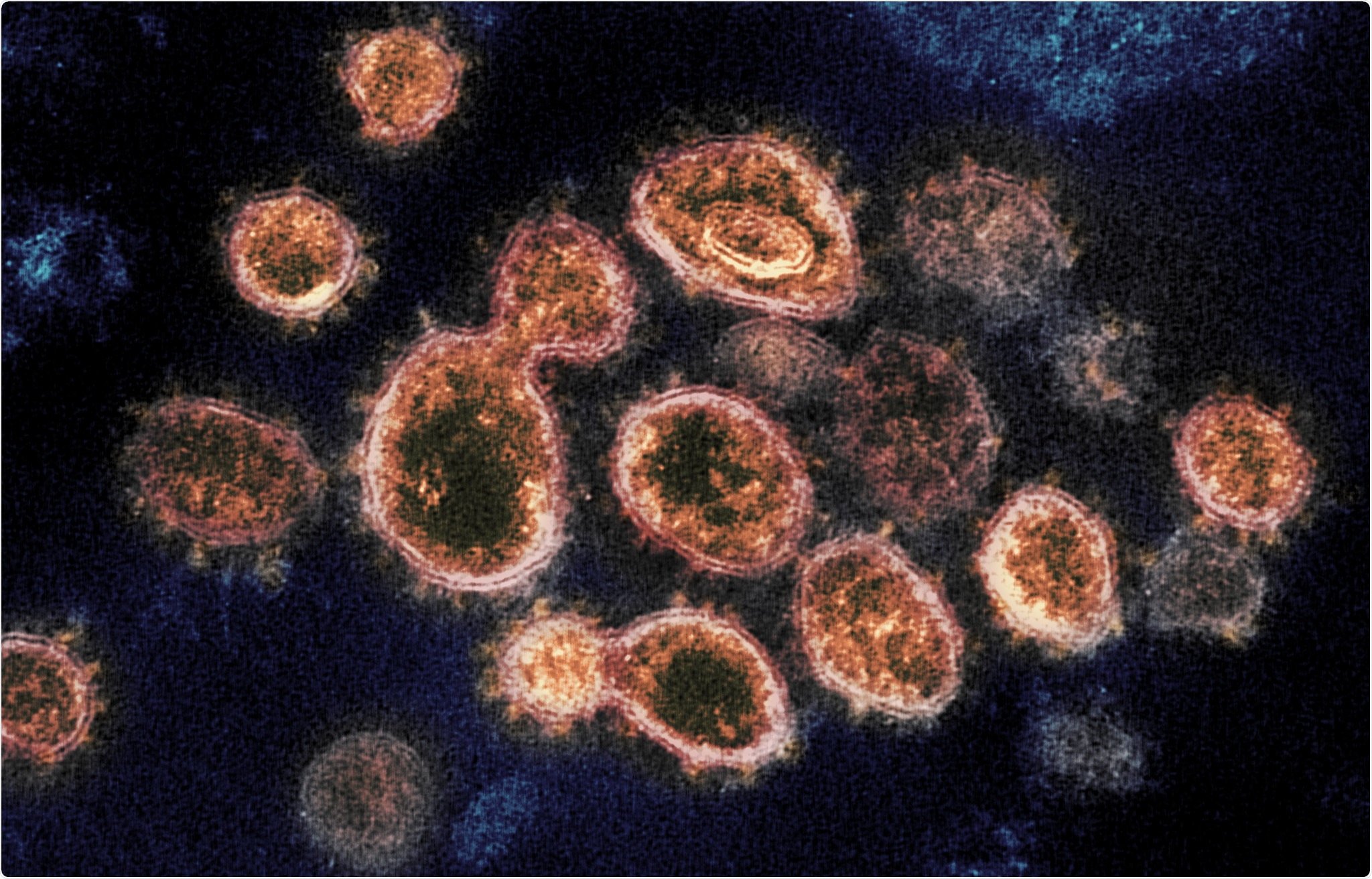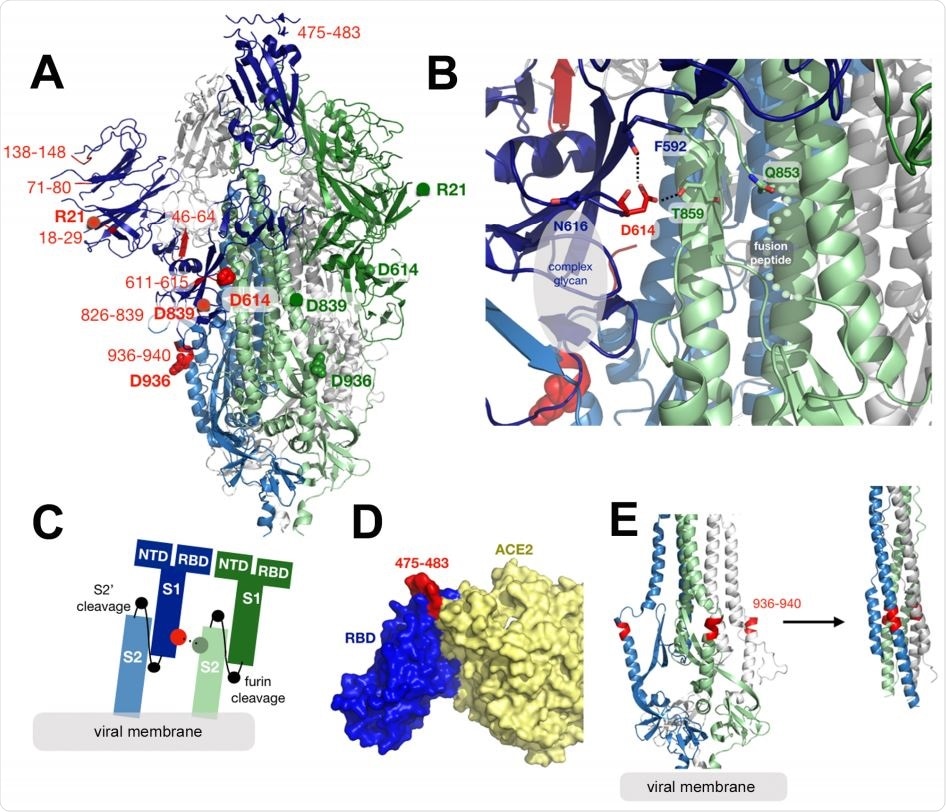The coronavirus pandemic is far from over as it actively spreads across the globe. The infection toll has reached a staggering 10.84 million people since it emerged in late December 2019 in Wuhan City, China. The virus that has left the city has now spread to 188 countries and territories and has mutated, becoming more infectious.
Now, a team of international scientists has found a new strain of the severe acute respiratory syndrome coronavirus 2 (SARS-CoV-2) that is more likely to infect people but does not seem to make them any sicker than earlier variations.

Novel Coronavirus SARS-CoV-2 This transmission electron microscope image shows SARS-CoV-2, the virus that causes COVID-19, isolated from a patient in the U.S. Virus particles are shown emerging from the surface of cells cultured in the lab. The spikes on the outer edge of the virus particles give coronaviruses their name, crown-like. Image captured and colorized at NIAID's Rocky Mountain Laboratories (RML) in Hamilton, Montana. Credit: NIAID
The mutation
In May, a preprint study published in bioRxiv, reported that a variant of the virus, the D614G mutation, causes an amino acid change in its spike protein, making it more infectious than other variants of the virus. In the paper, the scientists revealed that the D614G mutation is rapidly spreading at an alarming rate, which has reached Europe from China. It has been the leading strain in multiple regions during the outbreak in May.
Now, a new scientific pre-proof version of the paper by the researchers and published in the journal Cell offers additional insight and clinical data about this SARS-CoV-2 mutation.
The researchers found that the genetic variation of the SARS-CoV-2 that dominates the world today infects human cells more readily than the original strain in China. The variant with spike G614 has replaced D614 as the dominant pandemic form, which produces higher viral loads and is more infectious in humans.

Structural mapping of amino acid changes and clusters of variation in the Spike protein.
The D614G variant makes a small but effective change in the spike glycoprotein, which protrudes from the virus surface. The virus uses this spike protein to bind with the angiotensin-converting enzyme 2 (ACE2) receptors in human cells. Once it attaches to the receptor, it can readily enter the human cell and trigger an infection.
However, when the G614 variant emerged, it quickly took over the dominant strain, which is the D614G.
Genome sequences
The research team, consisting of experts from the Los Alamos National Laboratory in New Mexico, Duke University in North Carolina, and the University of Sheffield’s Coronavirus Disease (COVID-19) Genomics U.K. research group, analyzed genome samples published in GISAID, an international resource for sharing genome sequences among researchers across the globe.
The team has not only checked more genetic sequences, but they have also conducted experiments involving people, animals, and cell cultures in the laboratory. The findings of their experiments showed the mutated version of the SARS-CoV-2 is more prevalent and more infectious than the other strains.
Does not cause more severe disease
The coronavirus pandemic has now killed more than 520,000 people worldwide. The group suggested, however, that even though the new variant is more infectious and spreads easily, it does not seem to cause more severe disease.
Further, the team has found that those with the new strain of the virus had higher viral loads in the upper respiratory tract, making it more infectious.
“In infected individuals, G614 is associated with lower RTPCR cycle thresholds, suggestive of higher upper respiratory tract viral loads, although not with increased disease severity. These findings illuminate changes important for a mechanistic understanding of the virus and support continuing surveillance of Spike mutations to aid in the development of immunological interventions,” the researchers concluded in the study.
The researchers noted that even if the mutation of the novel coronavirus comes from just small changes, it can impact the development of vaccines and therapeutics being designed to combat the coronavirus disease.
“Also, if the G614 variant is indeed more infectious than the D614 form, it may require higher antibody levels for protection by vaccines or antibody therapeutics than the D614 form,” they said.
This means that vaccine development should take into consideration these variant changes. This way, when a vaccine is eventually developed against the novel coronavirus, it can offer protection for both strains or variants of the virus.
The pandemic has widely spread, with the United States, Brazil, Russia, Peru, United Kingdom, and India as the hardest-hit countries. The U.S. has a case toll of more than 2.73 million, with at least 128,000 deaths. Meanwhile, Brazil has reported more than 1.49 million cases, which has skyrocketed over the past month.
Russia, India, Peru, and the United Kingdom have high infection tolls, with more than 660,000 cases, 604,000 cases, 292,000 cases, and 285,000 cases, respectively.
Sources:
Journal reference: